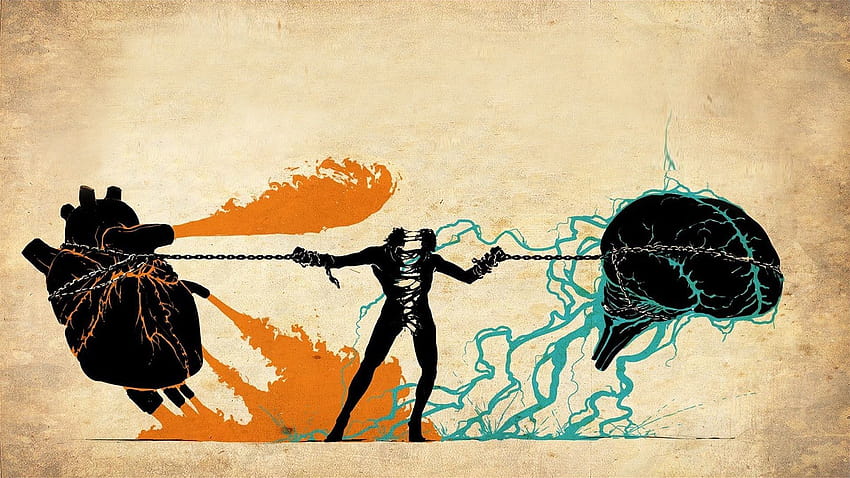
The human mind is a fascinating arena of study, full of intricate intricacies that continue to baffle and amaze researchers and psychologists alike. Psychology, the scientific exploration of the human mind and behavior, provides us with the tools to begin unraveling the enigmatic secrets hidden within. As we delve deeper into the vast realm of psychology, we discover a complex web of thoughts, emotions, and behaviors that shape our very existence.
At its core, psychology seeks to understand the underlying processes that drive human behavior and cognition. It investigates the interplay between our thoughts, feelings, and actions, aiming to shed light on why we do what we do. Through a combination of research studies, experiments, and clinical observations, psychologists strive to unravel the mysteries of the human mind, expanding our understanding of ourselves and those around us.
In this article, we embark on a journey through the vast landscape of psychology, exploring its different branches and the insights it offers into the human psyche. From cognitive psychology, which examines how we perceive, think, and learn, to social psychology, which investigates the influence of our interactions with others on our behavior, each branch contributes to a comprehensive mosaic of human understanding. Join us as we untangle the intricate threads that make up the remarkable web of the human mind, and reveal the secrets that lie at the heart of psychology.
Understanding the Mind-Body Connection
The mind-body connection is a fascinating aspect of psychology that explores the intricate relationship between our thoughts, emotions, and physical well-being. It is a concept that has intrigued scientists and researchers for centuries, as it holds the key to unlocking the secrets of human behavior and understanding the impact our mental state has on our physical health.
One of the fundamental aspects of the mind-body connection is the influence of our thoughts and emotions on our physical sensations. Studies have shown that our mental state can directly affect our physical well-being. For example, when we experience stress or anxiety, our bodies often respond with increased heart rate, tense muscles, and shallow breathing. On the other hand, positive emotions such as happiness and relaxation can lead to a sense of ease and physical comfort.
Furthermore, the mind-body connection also explores the impact of our physical health on our mental state. It is known that certain physical conditions or illnesses can have a significant effect on our emotions and mental well-being. Chronic pain, for instance, can lead to feelings of frustration, irritability, and even depression. Similarly, a healthy lifestyle that includes regular exercise and nutritious diet has been shown to improve mood and overall mental health.
Psychologist Near Me
Understanding the mind-body connection is crucial in the field of psychology as it provides insights into the holistic approach to well-being. By recognizing the interplay between our thoughts, emotions, and physical state, psychologists can develop effective strategies and interventions to promote overall health and happiness. This knowledge also highlights the importance of self-care and finding balance in our daily lives, as nurturing both our mental and physical well-being is essential for a fulfilling and meaningful existence.
Exploring the Subconscious Mind
The human mind is a mysterious and complex entity, and one of its most intriguing aspects is the subconscious mind. Often shrouded in secrecy, the subconscious plays a crucial role in shaping our thoughts, emotions, and behaviors. While we may not be aware of its workings on a conscious level, psychologists have delved deep into the hidden realms of the subconscious to unravel its secrets.
One fascinating phenomenon within the subconscious is the presence of implicit biases. These biases are unconscious associations and attitudes that we hold towards certain groups of people or objects. Despite our best intentions, these biases can influence our decision-making and interactions with others. Uncovering and understanding these implicit biases is a vital step towards creating a more inclusive and equitable society.
Another noteworthy aspect of the subconscious mind is its role in memory formation and retrieval. Memories that have been encoded in the subconscious can resurface unexpectedly, often triggered by external cues or experiences. This can explain why certain scents, sounds, or sights can transport us back to specific moments in our past, evoking vivid emotions and sensations.
Lastly, the subconscious mind is home to our deepest desires, fears, and dreams. Through techniques such as dream analysis and hypnosis, psychologists have attempted to tap into this hidden realm to gain insights into our psyche. Exploring the subconscious can provide valuable information about our unresolved conflicts, unmet needs, and untapped potential, offering a pathway towards personal growth and self-discovery.
In conclusion, the subconscious mind is a rich and intricate domain within psychology. By studying and understanding its workings, psychologists can shed light on the complexities of human behavior and provide valuable insights into the human experience. The exploration of the subconscious has the potential to unlock hidden truths, leading us towards a deeper understanding of ourselves and our place in the world.
Analyzing Cognitive Processes
Cognitive processes play a crucial role in understanding the fascinating workings of the human mind. These processes encompass a wide range of mental activities that contribute to our ability to think, reason, remember, and perceive the world around us.
One fundamental aspect of cognitive processes is attention. Whenever we engage in a task or interact with our environment, our attention allows us to focus on relevant stimuli while filtering out distractions. Attention is not a static state but rather a dynamic process that can be influenced by various factors, such as the task’s importance or novelty, personal interests, and external cues.
Another important cognitive process is memory, which enables us to encode, store, and retrieve information. Our memory serves as a repository where we store our experiences, knowledge, and skills, shaping our understanding of the world and guiding our future actions. Memory can be further broken down into different types, such as working memory, short-term memory, and long-term memory, each serving specific functions in information processing.
Lastly, cognitive processes also involve problem-solving and decision-making. When faced with challenges or dilemmas, our cognitive abilities come into play as we analyze the problem, consider possible solutions, and evaluate their potential outcomes. Problem-solving not only requires logical reasoning but also creative thinking and the ability to think flexibly to overcome obstacles.
Understanding these cognitive processes is crucial not only for psychologists but also for individuals aiming to enhance their own cognitive abilities. By further exploring and researching these intricate mental processes, we gain valuable insights into human behavior, learning, and development, ultimately unraveling the secrets of psychology.
